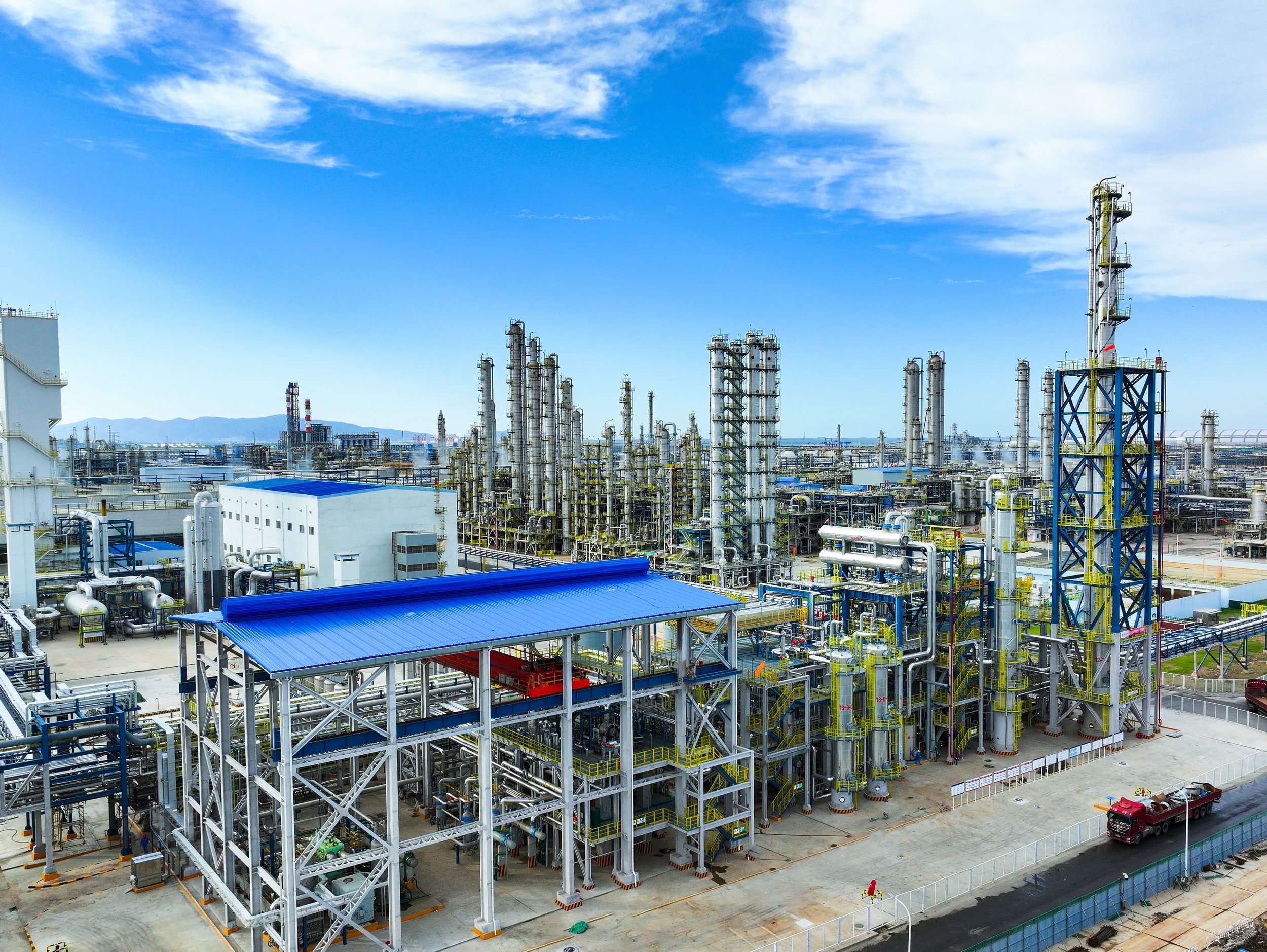
Chemicals and Plastics From Renewable Methanol
Methanol is a versatile building block for the carbon-containing chemicals used in everyday products such as plastics, car parts and construction materials. Carbon is a fundamental component of many essential chemicals and sourcing it from non-fossil sources can dramatically reduce its environmental impact.
Renewable methanol, produced from renewable electrolytic hydrogen and sustainable biomass or carbon dioxide, can enable industries that rely on carbon-containing chemicals to reduce or eliminate their dependence on fossil fuels. This renewable methanol is chemically identical to fossil-based methanol and can be used in most value chains to reduce carbon dioxide emissions by up to 95%*.
Partnering with chemical companies across diverse industries, CRI has demonstrated that CO₂ that would otherwise have been released into the atmosphere can be recycled at scale to produce certified sustainable methanol — a product that has established value and demand on a large global scale. This renewable methanol has been proven as a feedstock for chemical producers, offering a promising alternative to fossil-based methanol.
*Source: Methanol Institute
Pathways for Methanol in the Chemicals Industry
Markets for Methanol
Renewable methanol is gaining traction as a sustainable fuel and alternative feedstock for various industries. It provides a low-carbon pathway to methanol derivative products, crucial to many of the industries we rely on in day-to-day life. Here are some examples of where renewable methanol can replace fossil-based methanol to enable sustainability gains.
Plastics
One of the primary uses of methanol is as a feedstock for the plastics industry. The methanol-to-olefins (MTO) process is an example of an established process that converts methanol into high-value petrochemicals such as polypropylene and polyethylene. In addition to renewable methanol, emerging strategies such as direct or indirect molecular recycling are also promising approaches to closing the loop on carbon recycling.
Building Materials
Methanol is a feedstock of formaldehyde, a core component of construction materials such as plywood, particleboard and laminates. Methanol is also used to produce other key building materials, including cement, as well as films and encapsulants used for solar panels.
Waste Water Treatment
A Methanol Institute report showed that methanol is the most suitable external carbon source for wastewater treatment, outperforming ethanol and acetic acid. Low COD:N dosing makes methanol the most cost-efficient external carbon source that generates the least amount of solids.
Pharmaceuticals
Renewable methanol serves as a solvent in drug manufacturing and as a reagent for synthesising pharmaceutical intermediates and active ingredients. It is also employed as a solvent in analytical testing and in cleaning and sterilisation processes.
Paints
Methanol is used as a solvent for pigment and resin dispersion, which ensures smooth paint formulations. It is used in surface cleaning to promote proper adhesion and acts as an additive to improve viscosity control and drying properties. Methanol is also found in ink production and polyurethane coatings to enhance durability.
Consumer Goods
Methanol is found in many of the consumer goods we use in everyday life. Some examples include perfumes, deodorants, hair care products and cleaning solutions. As a precursor in plastics manufacturing, methanol is also used to make packaging, containers, utensils and synthetic fibres for clothes and other consumer goods.
Methanol and Renewable Methanol – Long Term Supply and Demand in the Global Market
The methanol market is seeing significant and sustained growth, driven by the increasing uses of renewable methanol in new applications and as a substitute for fossil-fuel-based methanol.
Overall methanol supply and demand is projected to rise steadily, driven by traditional uses such as formaldehyde and emerging applications such as clean fuels and MTO technology. The Asia-Pacific region is at the forefront of this growth, with China taking the lead in adopting methanol-powered vehicles.
Methanol – Current Demand Growth and Move to Market Maturity
The demand for renewable methanol in diverse industries such as marine, aviation, chemicals and renewable power development is driving unprecedented investment in renewable methanol production and shaping methanol supply and demand dynamics, with a focus on eMethanol.
For more information on methanol derivatives, applications, market size and the latest developments, visit the Methanol Institute website.
Renewable Methanol Firsts
CRI is an industry leader in renewable methanol production and carbon-to-methanol technology. As the first company to enter large-scale renewable methanol production, CRI’s portfolio includes two of the world’s largest CO₂-to-methanol plants, with each producing over 100,000 tonnes of sustainable methanol per year for the local and global methanol markets.
CRI was also the first company in the world to obtain certification to distribute renewable methanol and has extensive experience selling eMethanol into various industries, including wastewater treatment, biodiesel production, cosmetics, marine fuel and gasoline blending.
CRI Services
Project Feasibility & Conceptual Studies
ETL Technology
Project Technical Services
Lifetime Services
-

CO2 Emission Sources
-

Chemical Producers and Consumers
-

eFuels Producers and Consumers
-

Renewable Energy and Hydrogen Project Developers
Work with us
CO₂ Recycling | Renewable Energy Use | Renewable Methanol Production
proven at scale, with plants over 100,000 tonnes/year
technology with the best efficiency and flexibility for CO₂ recycling
expertise to realise projects














